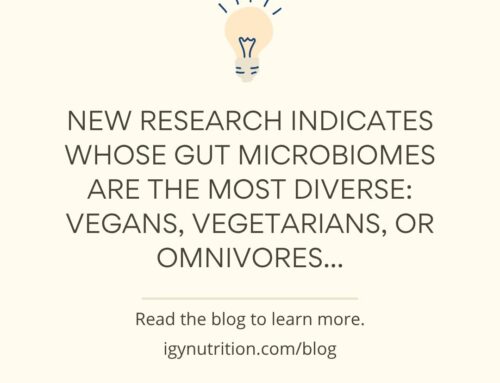It’s 5 o’clock somewhere, right? Whether your drink of choice is wine, beer, cocktails, or straight hard liquor, everyone loves a celebratory drink now and then.
So what’s the deal with alcohol and gut health? How can you balance your social life and enjoyment of alcohol with your health? Let’s take a look.
Throughout the blog, we’ll look at alcohol’s effects on different aspects of gut health. We’ll start with the good news, then touch on the bad news, and finish with advice.
Alcohol and the Gut Lining
Let’s start with the good news about alcohol’s effects on the gut lining.
If you’re unsure what the gut lining is, check out our blogs on leaky gut syndrome before jumping into this one.
First off, we know that alcohol’s impact on the gut lining is more apparent when it is chronically and excessively consumed (1). We’re talking about having drinks every day or binge drinking (3+ drinks at once).
Having one to two drinks once or twice per week won’t obliterate your gut lining like many gut health influencers claim it does.
In moderation, your gut can likely manage alcohol. However, it does weaken the gut lining. Combining alcohol with NSAIDs and an inflammatory diet might create intestinal permeability (2).
If you are already grappling with intestinal permeability, it’s a good idea to minimize your alcohol intake while the gut lining is healing.
Alcohol and Gluten
This point has to do with intestinal permeability as well. If you haven’t read our blog on gluten and the gut lining, check that out before jumping into this one. But here’s a quick recap.
Zonulin is a protein that upregulates intestinal permeability. Gluten tends to increase zonulin in the gut (3). Too much zonulin often leads to a too-permeable gut lining (3).
If you’re struggling with dysbiosis, leaky gut syndrome, or generalized gut health issues, picking a gluten-free alcohol source may be beneficial.
The good news? There are plenty of gluten-free alcohol sources that will do the trick. Next Friday night, try:
- Wine
- Tequila
- Vodka
- Hard cider
- Rum
- Mezcal
- Hard seltzer
- Much more!
Alcohol and Digestion
Ever had some stomach upset after having too much alcohol? You’re not alone.
Significant amounts of alcohol can slow down gastric emptying, meaning alcohol changes your digestion speed (4). Check out our blog on the migrating motor complex to learn why timely digestion is vital for gastrointestinal health.
Slow gastric emptying may lead to more fermentation and bacterial breakdown of food, causing nasty symptoms like gas and bloating (5).
Considering that a significant amount of alcohol consumption can delay gastric emptying, consuming alcohol at least one to two hours after eating may be beneficial.
That way, your body has the chance to break down your meal in your stomach with enough stomach acid and to thoroughly empty it into your small intestine before alcohol comes in to do its damage.
Tag us in a photo of your alcoholic beverages of choice on Instagram @igynutrition. Thanks for joining us today!
References
- Bishehsari F, Magno E, Swanson G, Desai V, Voigt RM, Forsyth CB, Keshavarzian A. Alcohol and Gut-Derived Inflammation. Alcohol Res. 2017;38(2):163-171. PMID: 28988571; PMCID: PMC5513683. https://www.ncbi.nlm.nih.gov/pmc/articles/PMC5513683/
- Purohit, V., Bode, J. C., Bode, C., Brenner, D. A., Choudhry, M. A., Hamilton, F., Kang, Y. J., Keshavarzian, A., Rao, R., Sartor, R. B., Swanson, C., & Turner, J. R. (2008). Alcohol, intestinal bacterial growth, intestinal permeability to endotoxin, and medical consequences: summary of a symposium. Alcohol (Fayetteville, N.Y.), 42(5), 349–361. https://doi.org/10.1016/j.alcohol.2008.03.131
- Fasano A. (2012). Zonulin, regulation of tight junctions, and autoimmune diseases. Annals of the New York Academy of Sciences, 1258(1), 25–33. https://doi.org/10.1111/j.1749-6632.2012.06538.x
- Grad S, Abenavoli L, Dumitrascu DL. The Effect of Alcohol on Gastrointestinal Motility. Rev Recent Clin Trials. 2016;11(3):191-5. doi: 10.2174/1574887111666160815103251. PMID: 27527893. https://pubmed.ncbi.nlm.nih.gov/27527893/
- “Gastric Emptying.” Gastric Emptying – an Overview | ScienceDirect Topics, https://www.sciencedirect.com/topics/agricultural-and-biological-sciences/gastric-emptying.




